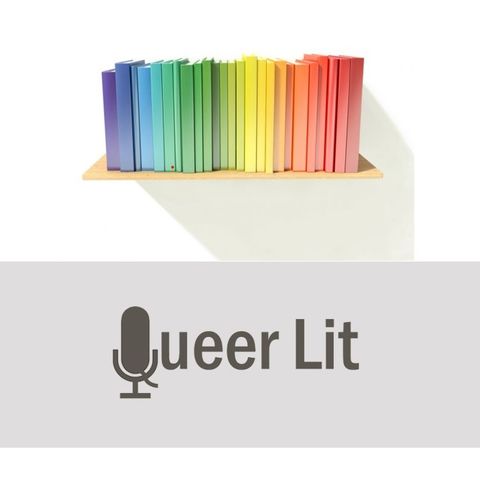"Queer Narratives" with Sue Lanser

Download and listen anywhere
Download your favorite episodes and enjoy them, wherever you are! Sign up or log in now to access offline listening.
Description
Prof Susan Lanser (Brandeis University) joins me for this one – what an honour! Sue is one of the architects of narratology and has conducted groundbreaking research on queer women,...
show moreTexts, films and authors mentioned:
Gérard Genette
Valerie Traub
Shlomith Rimmon-Kenan
The Living Handbook of Narratology (Hamburg University)
Sami Adwan and Dan Bar-On’s “Side by Side: Parallel Histories of Israel-Palestine”
“Kiss Me Kosher”
Isaac de Benserade’s “Iphis and Ianthe” (1634, after Ovid)
Poetry of Katherine Phillips
Djuna Barnes’ “Ladies Almanack”
Ocean Vuong’s “On Earth We’re Briefly Gorgeous”
Sue’s scholarly work mentioned:
(with Shlomith Rimmon-Kenan) "Narratology at the Checkpoint: The Politics and Poetics of Entanglement." Narrative 27.3 (2019): 245-269.
"Queering Narrative Voice." Textual Practice 32.6 (2018): 923-937.
(with Shlomith Rimmon-Kenan) "Israeli–Palestinian narratives and the politics of form: reading Side by Side." European Journal of English Studies 20.3 (2016): 310-325.
"Gender and Narrative." Handbook of Narratology. De Gruyter, 2014. 206-218.
https://www.lhn.uni-hamburg.de/node/86.html
The Sexuality of History: Modernity and the Sapphic, 1565-1830. University of Chicago Press, 2014.
"Speaking in Tongues: Ladies Almanack and the Language of Celebration." Frontiers: A Journal of Women Studies (1979): 39-46.
Want to find out more about Queer Lit and who I will speak to next? Find me on Twitter (@Lena_Mattheis) or check out pictures of my home office pets on Instagram (lena_mattheis).
Questions you should be able to respond to after listening:
1. What is the relationship between Feminism and Queer Studies?
2. What does Sue think about the relationship of content and form in literature?
3. Is there such a thing as queer form?
4. According to Sue, which century is ‘the’ century of the word lesbian?
5. Why is it important to think, not just about the history of sexuality, but also about the sexuality of history?
6. Why is the year 1928 particularly significant in queer literature?
Information
| Author | Lena Mattheis |
| Organization | Lena Mattheis |
| Website | - |
| Tags |
Copyright 2024 - Spreaker Inc. an iHeartMedia Company

Comments